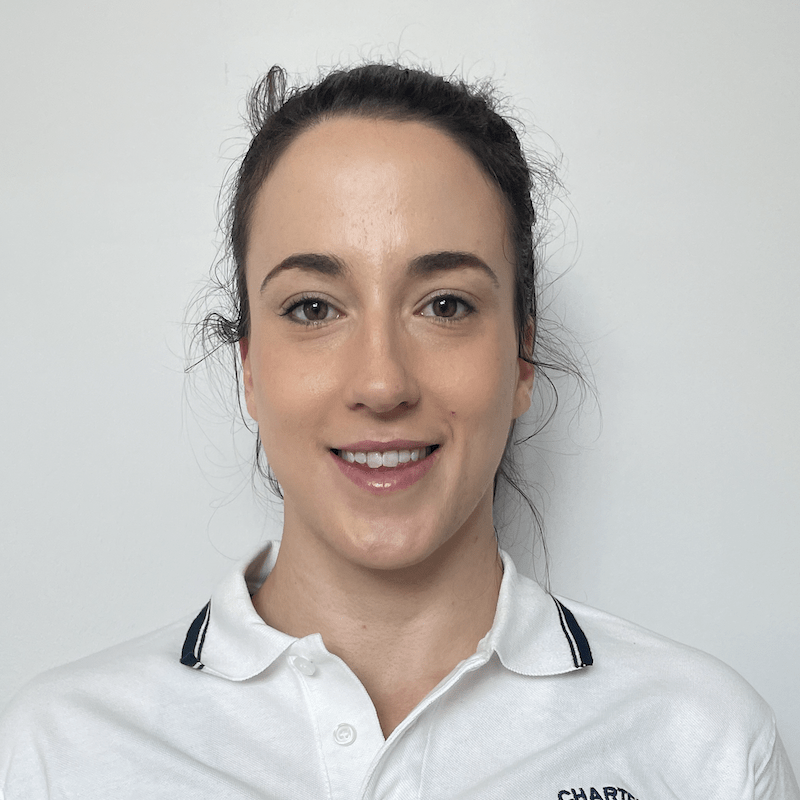TMJ Physiotherapy
Is jaw pain stopping you from living a normal life?
Does this describe you?
- Are you suffering jaw pain or tenderness?
- Do you have difficulty or discomfort while chewing?
- Have you got clicking, popping, or grating sounds when moving the jaw?
- Do you have limited range of motion opening your mouth?
- Do you suffer facial pain or headaches, particularly around the temples or ears?
- Is locking of the jaw, making it difficult to open or close the mouth?
At Wandsworth physiotherapy and osteopathy our highly experienced TMJ physiotherapists treat people just like you and help them get back to what they love doing without further jaw pain.
Temporomandibular Joint (TMJ) Disorders refers to a range of conditions affecting the TMJ itself, which connects your jawbone to your skull. This disorder can cause discomfort, pain and limitations in jaw movement. This can impact daily activities such as eating, speaking, and even sleeping.
Anatomy of the TMJ
The temporomandibular joint is a complex structure comprised of the jawbone (mandible), temporal bone of the skull, and a disc that cushions the joint. Muscles surrounding the joint, including the masseter, temporalis, and pterygoid muscles, play a crucial role in jaw movement and stability.
The TMJ functions through a combination of hinge and sliding motions, allowing for the opening, closing, and side-to-side movements of the jaw. The coordinated action of muscles, ligaments, and the joint itself enables smooth and pain-free jaw function.
Causes of TMJ Disorders
TMJ disorders can arise from various factors, including:
Trauma
Direct impact to the jaw, such as from a fall or blow, can damage the TMJ and surrounding structures.
Bruxism (Teeth Grinding)
Persistent clenching or grinding of teeth, often during sleep, can exert excessive pressure on the TMJ, leading to inflammation and discomfort in the joint. It can also lead to hypertrophy of the muscles of mastication – predominantly the masseter muscle. This becomes enlarged and painful.
Misalignment of the Neck, Teeth or Jaw
An abnormal bite or jaw alignment can strain the TMJ, causing pain and dysfunction. As can stiff and dysfunction in the cervical vertebra. The neck should usually also be assessed when you have jaw pain.
Stress
Tension and stress can contribute to jaw clenching and muscle tightness, exacerbating TMJ symptoms.
Arthritis
Conditions such as osteoarthritis or rheumatoid arthritis can affect the TMJ, leading to inflammation, pain and stiffness.
Ready to Make a Change?
At Wandsworth Physiotherapy & Osteopathy we're focused on getting you out of pain and back to what you love doing, so you can fulfil your dreams. It may be simply sitting comfortably to playing with your kids, getting back into the gym or being able to run 5k again, our expert Physiotherapists, Podiatrists & Osteopaths in Wandsworth Town, Clapham Junction and Battersea Nine Elms are here to help!
All appointments are secured with payment. All appointments cancelled within 24 hours of the start time or not attended will not be refunded.
How can Physiotherapy help?
Symptoms of TMJ disorder may vary from person to person but commonly include:
- Jaw pain or tenderness
- Difficulty or discomfort while chewing
- Clicking, popping, or grating sounds when moving the jaw
- Limited range of motion in the jaw
- Facial pain or headaches, particularly around the temples or ears
- Locking of the jaw, making it difficult to open or close the mouth
Treatment Options for TMJ disorders
Treatment for TMJ disorder aims to alleviate symptoms, improve jaw function, and address underlying causes. Here are some common treatment modalities:
Self-Care Measures
Simple self-care techniques can often provide relief from mild TMJ symptoms. These may include applying ice packs to the jaw, practicing stress-reduction techniques, and avoiding hard or chewy foods.
Medications
Over-the-counter pain relievers such as ibuprofen or paracetamol can help alleviate pain and inflammation associated with TMJ disorder. In some cases, muscle relaxants or anti-anxiety medications may be prescribed to reduce muscle tension and stress.
Physical Therapy for TMJ disorders
A physiotherapist can design a personalised exercise program to strengthen jaw muscles, improve range of motion, and promote relaxation. Manual therapy techniques such as massage, acupuncture and joint mobilisation may also be utilised to alleviate pain and stiffness.
Botox injections for TMJ pain
This is a muscle relaxant that can be injected into the masseter and temporalis muscles to relax them for a period of a few months. This will decrease their strength and can take pressure out of the TMJ allowing the pain to settle down.
Dental Treatments
If your TMJ disorder is related to dental issues such as misalignment or bruxism, your dentist may recommend treatments such as orthodontic work, occlusal splints (mouth guards), or dental restorations to correct bite abnormalities and reduce jaw strain.
Book your initial consultation so we can help reduce your jaw pain today…
Meet The Team
Our Locations
338 Old York Road, London, SW18 1SS
Get Directions
Clapham Junction
19 St. John's Road. London, SW11 1QN
Get Directions
Battersea Nine Elms
28-29 Wilcox Cl, London, SW8 2UD
Get Directions
Get In Touch
Request a call back - tell us about your problem… if you’re not sure what physiotherapy or osteopathy are and whether they can help your problem request a call back from one of our expert therapists.
We can listen to your problem and let you know if we can help... just leave your details using the contact form and we'll be in touch as soon as possible!
Please note: Enquiries are checked daily and will be responded to within 24 hours during clinic open hours.
Cancellation Policy
Please note we have a 24 hour cancellation policy. Please respect our therapists and give them more than 24 hours notice if you need to change or cancel an appointment.
All appointments are secured with payment by credit or debit card or with medical insurance details. You are fully responsible for all appointments booked online. All appointments (including any booking errors you make) that are cancelled or amended within 24 hours of the start time, or not attended are non-refundable. If you are using medical insurance all cancellation cost are incurred by you and not by the insurance company. If you are unsure about your booking, please contact us before proceeding. By booking, you agree to these terms.
Failure to make payment on request will affect future appointments that we are able to offer you. Any refunds that are provided take 5-10 business days as per Stripe's payment terms.
Thank you.
Telephone Reception
We have reception cover most of the time we are open, however if you can't get through it's quick and easy to book online. Please be aware that calls to Wandsworth Physiotherapy & Osteopathy are recorded to comply with ICO data protection and the recordings are stored for 3 months then deleted. All stored information is password protected.
Opening Hours
| Monday | 08:00 - 21:00 |
| Tuesday | 08:00 - 21:00 |
| Wednesday | 08:00 - 21:00 |
| Thursday | 08:00 - 21:00 |
| Friday | 08:00 - 20:30 |
| Saturday | 09:00 - 16:00 |
| Sunday | 10:00 - 15:00 |
Wandsworth Town location is as above. Other locations have different opening days and times. Please check before booking. No reception cover on Sundays - please book online, the door may be locked so use your Klevio digital key.





















